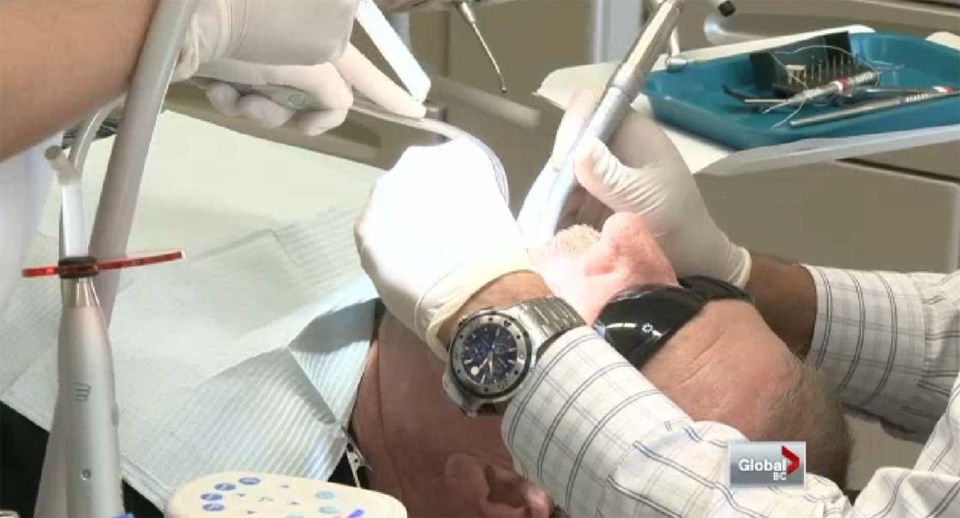Dentists in Sault Ste. Marie and across Ontario have been placed in a difficult position due to COVID-19.
Because social distancing isn’t possible in dentistry, dentists are now limited in the services they can provide to patients during the current pandemic.
Dentists across Ontario are following the recommendations from the Royal College of Dental Surgeons of Ontario (RCDSO). On March 15, the RCDSO recommended the suspension of all non-essential and elective dental services, and that emergency treatment should continue.
“With the Ontario government’s shutdown of non-essential workplaces this past week, dentistry is listed as an essential service but only for ‘providing emergency care.’ This aligns with the statement from the RCDSO. In dentistry, a ‘true emergency situation’ includes oral-facial trauma, significant infection, prolonged bleeding or pain which cannot be managed by over-the-counter medications,” wrote Dr. Nicholas Irwin, a local dentist and the Sault Ste. Marie & District Dental Society’s current president, in an email to SooToday.
“All dentists should be providing emergency care for their patients or arranging for another dentist to do so. We are not fully ‘shut down,’ but not regularly in-office either. There should not be any dentists performing full services, as this would contravene the recommendations from our college and the mandate of the Ontario government,” Irwin stated.
Local dentists, Irwin wrote, have been screening patients over the phone for symptoms of COVID-19 and to determine if there has been any recent travel prior to an in-office examination.
At Irwin’s dental practice, the dental on-call service has been instructed to no longer direct patients to Sault Area Hospital’s emergency department, but instead to reach out to the dentist on-call, even outside of regular business hours.
The number for dental emergencies is 705 949-3922. When a patient phones, the operator writes down the patient’s symptoms and contacts the dentist on call.
“This will help to ease the burden on the healthcare system and also to prevent further spread of COVID-19 within the community,” Irwin wrote.
Even then, Irwin wrote only dental offices that have enhanced personal protective equipment (PPE) may treat emergencies.
Enhanced PPE includes fit-tested N95 masks, face shields and protective gowns.
“In situations that require the use of a high speed handpiece (dental drill) or air-water syringe... these instruments generate aerosols (for example, the drills spin at 200,000 rpm), which could quickly spread COVID-19 within the dental office assuming a patient is positive for the virus,” Irwin explained.
“However, some emergencies may be managed without using a handpiece or air-water syringe and offices that only have standard PPE (masks, gloves, eye protection) may treat these as per RCDSO recommendations,” Irwin wrote.
Irwin told us many of his colleagues have had difficulty ordering enhanced PPE due to mass shortages, most of them only treating emergencies where aerosols wouldn’t be generated.
“Personally, it’s been a difficult time for me both as a clinician and as a business owner,” Irwin wrote.
“From a clinical perspective, although much of what we do is not necessarily considered ‘emergency treatment,’ its absence will lead to dental emergencies (routine fillings, cleanings, check-ups). At some point without this treatment, more emergencies will arise. I understand the frustration of patients who have phoned in and are unable to have a broken tooth fixed or a lost filling replaced, but given the current situation, it is for the safety of patients, dental staff, and dentists to delay this treatment.”
“It was rather unpleasant having to send my staff home. I’m optimistic with some of the new incentives that the federal government is promising to small business owners for their staff because I’m unsure how long this will go on.”
Irwin stated “my colleagues have expressed similar concerns. I think right now we are all sitting and waiting for ‘what’s next.’
“We know that our patients require routine treatment but also understand the severity of this pandemic. We all want to do our part in ‘flattening the curve’ and stopping the spread of COVID-19. This is the most important thing right now. If we can minimize the amount of contact with others by only treating true dental emergencies, we are both providing an essential service and reducing transmission of the virus,” Irwin wrote.



